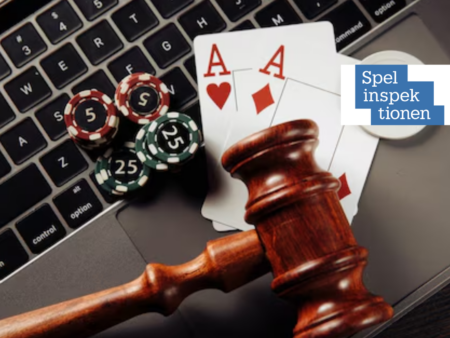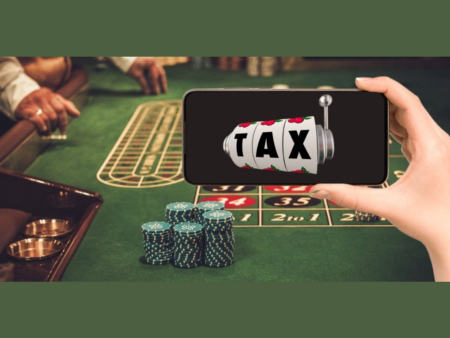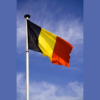The Kansspelautoriteit (KSA), the regulatory body for gaming and gambling in the Netherlands, has issued stern penalties against an individual operating illegal bingo games. This individual, whose identity has not been disclosed, used the Facebook page “Baco’s zaalbingo” to promote and conduct these unauthorized activities. Below, we delve into the details of the case, the regulatory framework for bingo in the Netherlands, and the broader implications of this enforcement action.
Unveiling the Illegal Bingo Operation
The organizer behind “Baco’s zaalbingo” orchestrated bingo games through livestreams on Facebook, attracting participants by selling tickets for €25 and bingo booklets for €62.50. While bingo may seem like a harmless pastime, the KSA’s investigation revealed several legal breaches:
- Lack of Licensing: The organizer did not possess the required license to conduct such activities, a fundamental requirement under Dutch gambling law.
- Excessive Prize Values: The prizes offered during these bingo sessions significantly exceeded the legal limits. Dutch law stipulates that bingo prizes cannot exceed €400 per individual prize or €1,550 in total.
- Personal Gains: Unlike charity bingos, where proceeds typically benefit non-profit organizations, the organizer retained the proceeds for personal use.
These violations highlight the seriousness of the case and underscore the necessity of adhering to Dutch gambling regulations.
The KSA’s Enforcement Measures
The KSA has taken decisive action to curb these violations. The organizer now faces substantial financial penalties if these activities continue:
- A fine of €13,125 per bingo session, capped at a maximum of €131,250.
- Additional penalties of €6,562.50 per advertisement, with a maximum limit of €65,625, under the ban on advertising illegal gambling activities.
These penalties are designed to deter unauthorized gaming activities and ensure compliance with the strict regulatory standards in the Netherlands.
Understanding Dutch Bingo Regulations
Bingo is a popular social activity in the Netherlands, but it is subject to strict regulations to prevent illegal gambling and protect participants. Key elements of Dutch bingo law include:
- Licensing Requirements: Organisers must obtain a license from the KSA to conduct bingo games legally. The licensing process ensures that the activities are fair, transparent, and compliant with the law.
- Prize Limits: Individual prizes cannot exceed €400, and the total prize pool for a single bingo session cannot surpass €1,550.
- Charitable Purpose: Bingo events are generally allowed if proceeds benefit a recognized charity or non-profit organization. Personal profit from bingo games is strictly prohibited.
These regulations aim to strike a balance between allowing recreational gaming and preventing exploitation or illegal gambling.
The Role of the Kansspelautoriteit
The Kansspelautoriteit plays a critical role in regulating gaming and gambling in the Netherlands. Its responsibilities include:
- Licensing and Oversight: Ensuring that all gaming operators comply with Dutch laws and operate with the appropriate licenses.
- Consumer Protection: Safeguarding participants from fraud, exploitation, and other risks associated with illegal gambling.
- Enforcement and Penalties: Investigating and penalizing unlawful gaming activities, as evidenced by the recent actions against “Baco’s zaalbingo.”
The KSA’s proactive approach ensures that the gaming sector remains safe and fair for all participants.
Implications of the KSA’s Actions
The enforcement measures against the organizer of “Baco’s zaalbingo” send a clear message to potential violators. Key takeaways include:
- Zero Tolerance for Unlicensed Activities: The KSA’s penalties underscore the importance of obtaining proper licenses for any gaming activities in the Netherlands.
- Protection of Legal Operators: By cracking down on illegal operations, the KSA helps maintain a level playing field for licensed operators.
- Awareness for Consumers: Participants in bingo or other gaming activities are encouraged to verify the legitimacy of the organizers to avoid unknowingly engaging in illegal gambling.
The Broader Impact on Illegal Gambling
Illegal gambling, including unauthorized bingo games, poses several risks:
- Financial Exploitation: Participants may lose money in unfair or fraudulent schemes.
- Lack of Consumer Protections: Without oversight, illegal games lack safeguards against malpractice.
- Erosion of Trust: Unregulated activities undermine public confidence in the gaming sector.
By addressing these issues, the KSA’s actions help to foster a safer and more transparent gaming environment.
Conclusion: The Action
The Kansspelautoriteit’s enforcement actions against “Baco’s zaalbingo” highlight the critical importance of adhering to Dutch gaming regulations. These measures protect consumers, uphold the integrity of the gaming sector, and deter illegal activities. As participants, organizers, and stakeholders navigate the gaming landscape, compliance with the law remains paramount.
FAQs About the Kansspelautoriteit’s (KSA) Action Against Illegal Bingo Organizer in the Netherlands
1. What prompted the Kansspelautoriteit (KSA) to take action?
The KSA acted against an individual operating illegal bingo games through the Facebook page “Baco’s zaalbingo.” The organizer conducted unlicensed bingo sessions and offered prizes exceeding legal limits, retaining proceeds for personal use rather than charitable purposes.
2. What are the licensing requirements for bingo games in the Netherlands?
Organizers must obtain a license from the KSA to conduct bingo games legally. The licensing process ensures the activity complies with Dutch law, including fair play and transparency.
3. Are there limits on prizes for bingo games in the Netherlands?
Yes, Dutch law sets strict prize limits for bingo games:
- Individual Prize: Cannot exceed €400.
- Total Prize Pool: Cannot surpass €1,550 for a single session.
4. What are the penalties for operating illegal bingo games?
The KSA imposed the following penalties on the organizer of “Baco’s zaalbingo”:
- Fine per Bingo Session: €13,125, capped at €131,250.
- Fine per Advertisement: €6,562.50, with a maximum of €65,625.
5. Can bingo games be conducted for personal profit?
No, bingo games in the Netherlands must benefit a recognized charity or non-profit organization. Personal profit from bingo activities is prohibited under Dutch gambling laws.
6. What is the role of the Kansspelautoriteit (KSA)?
The KSA is responsible for:
- Licensing and Regulation: Ensuring all gaming activities comply with Dutch laws.
- Consumer Protection: Safeguarding participants from exploitation and fraud.
- Enforcement: Investigating and penalizing illegal gambling activities.
7. How does the KSA ensure compliance in the gaming sector?
The KSA enforces strict regulations, including licensing requirements, prize limits, and oversight of charitable proceeds. Violators face substantial financial penalties to deter unauthorized activities.
8. What are the risks of participating in illegal bingo games?
Participants in illegal games face risks such as:
- Financial Loss: Potential exploitation or fraud.
- Lack of Safeguards: No consumer protection measures.
- Legal Consequences: Possible involvement in unlawful activities.
9. How can participants verify the legitimacy of bingo organizers?
Consumers should check whether the organizer has a valid license issued by the KSA. Licensed operators comply with Dutch gaming regulations, ensuring safety and fairness.
10. What message does the KSA’s enforcement action send?
The action against “Baco’s zaalbingo” reinforces the KSA’s zero-tolerance approach toward unlicensed gaming. It aims to protect consumers, support legal operators, and maintain the integrity of the gaming industry.


















